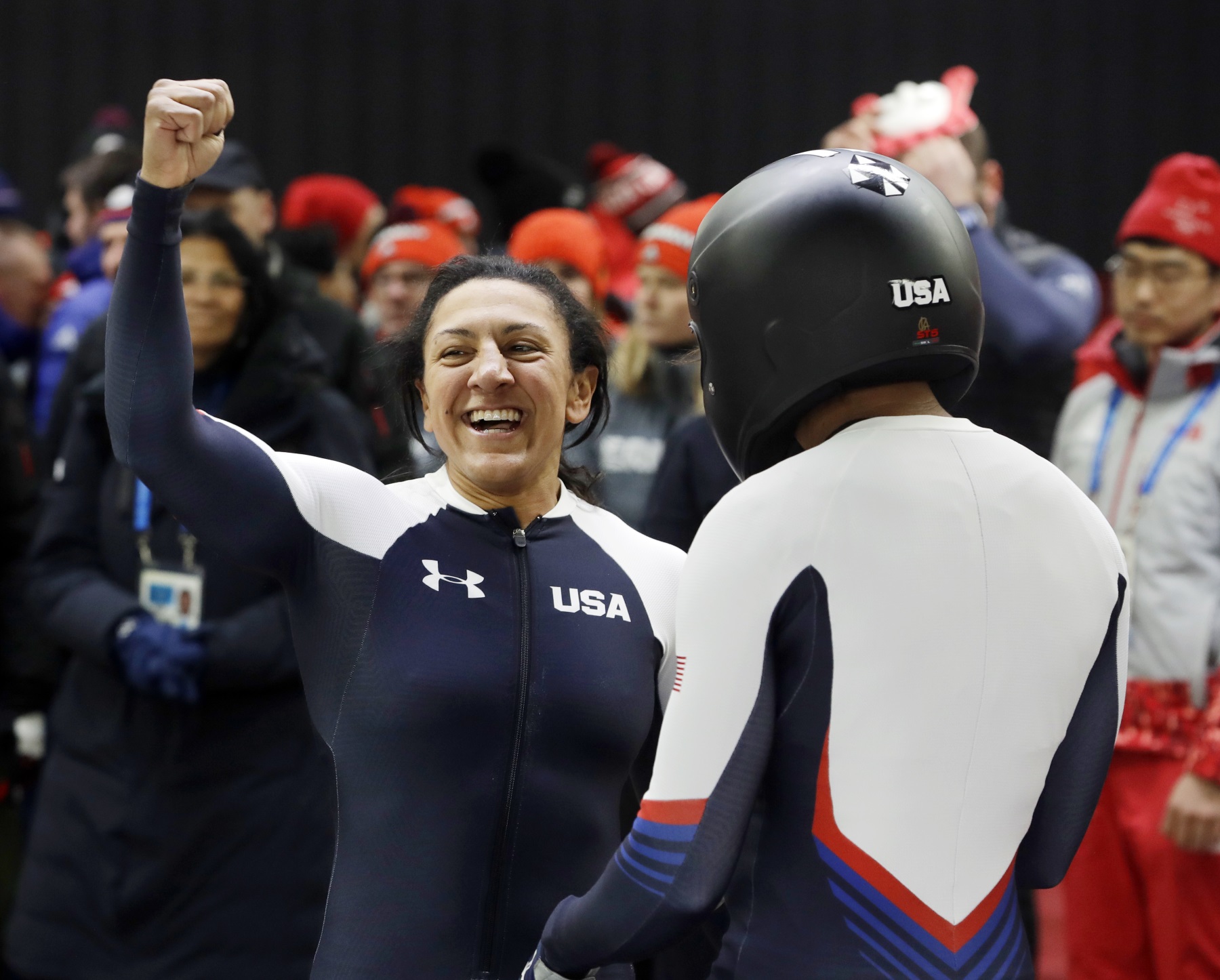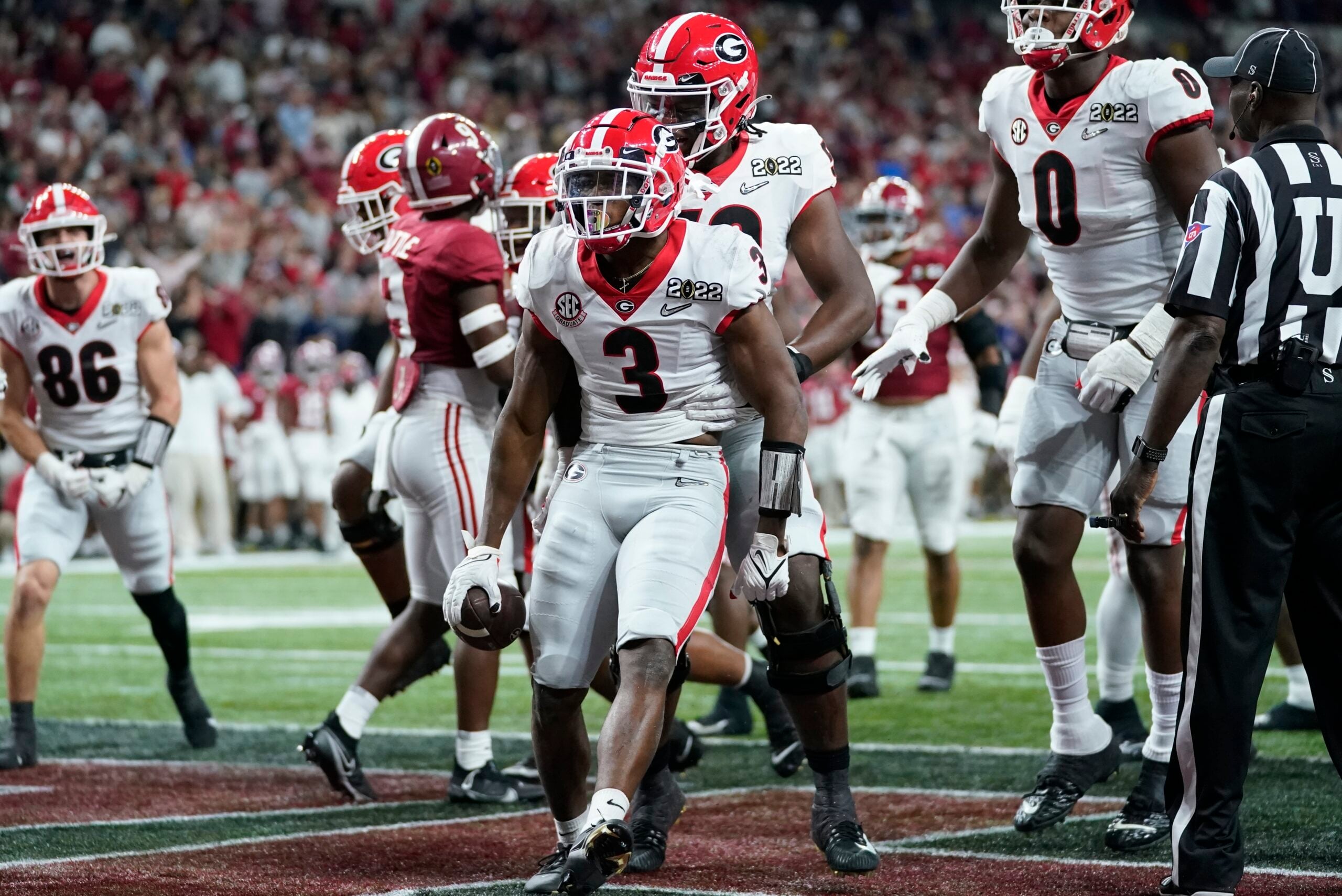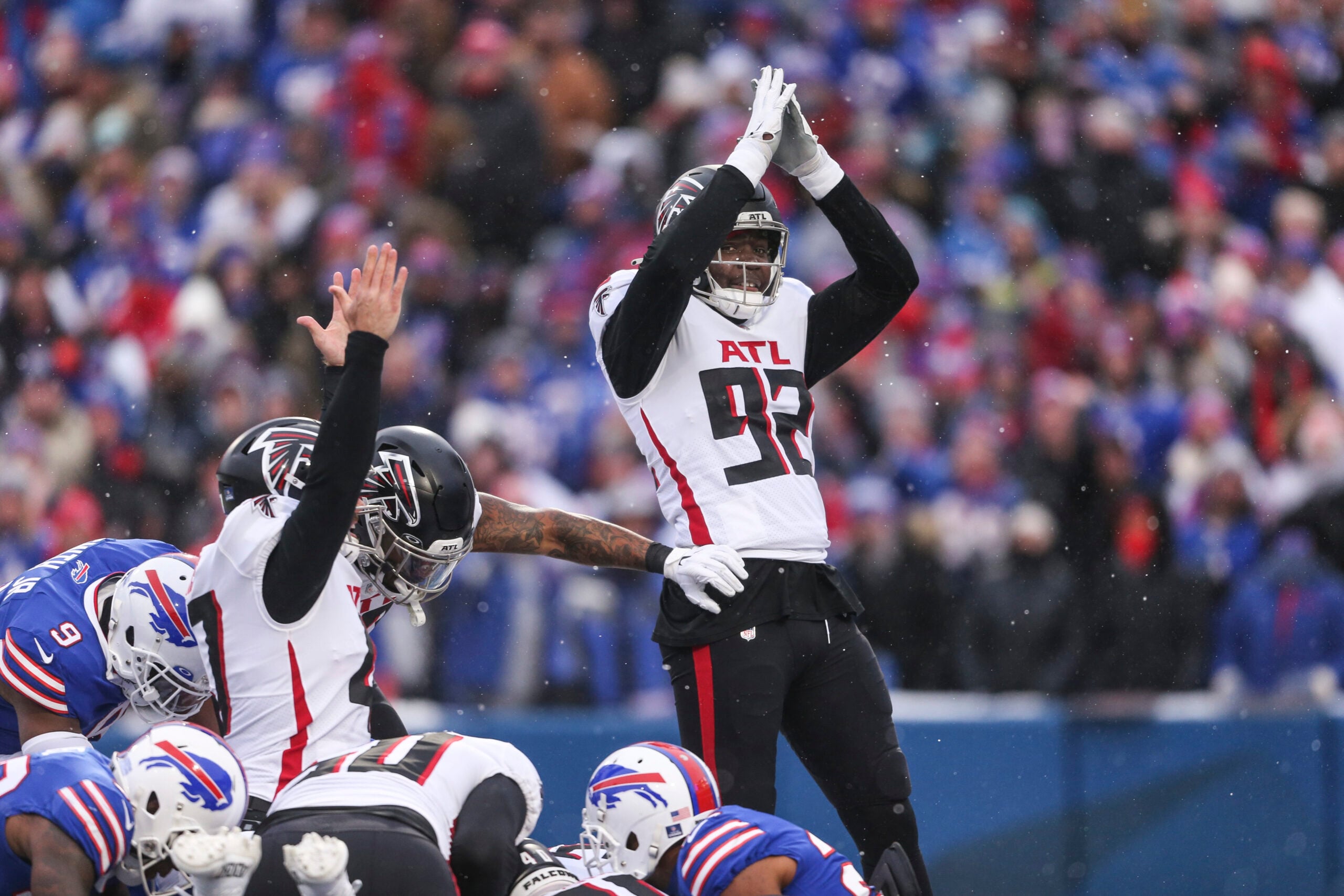Women’s bobsledding has a new star, and a surprise Olympic champion.
Germany’s Mariama Jamanka — a winner of exactly zero major international races in her life until now — drove to gold in the women’s bobsled event at the Pyeongchang Games on Wednesday, adding to her country’s dominant showing at the sliding track in these Olympics.
Jamanka and brakeman Lisa Buckwitz finished their four runs in 3 minutes, 22.45 seconds.
Elana Meyers Taylor, who lives in Douglasville, and Lauren Gibbs of the U.S. were second in 3:22.52, the 0.07-second margin being the closest between first and second in any Olympic women’s bobsled race.
Canada’s Kaillie Humphries teamed with Phylicia George to get third in 3:22.89.
It was the third consecutive medal for both Meyers Taylor and Humphries. Meyers Taylor won bronze as a push athlete in 2010 and silver as a driver in 2014; Humphries won gold in each of those Olympic races.
Both arrived in South Korea fully expecting gold. Jamanka had other ideas.
She showed absolute nerves of steel in the ultimate moment to win the 18th Olympic gold medal in German bobsled history, the second by a woman.
And there’s no question who the best team at the sliding track has been in these Pyeongchang Games. With eight of the nine events now complete in bobsled, skeleton and luge, Germany has won five golds and will be a favorite to grab yet another in the four-man event that ends on the final day of these games Sunday.
Nigeria, with pilot Seun Adigun and brakewomen Akuoma Omeoga and Ngozi Onwumere — Omeoga was ill and couldn’t race Wednesday, so she was subbed out — finished last in the 20-sled field, nearly four seconds behind 19th-place Jamaica.
The Nigerians were the first sled from an African nation to compete in women’s bobsled at the Olympics.
“All we have to give is everything we’ve got,” Adigun said.
Meyers Taylor and Jamanka were the last two sleds down the track, and the only two real remaining contenders for gold by that point in the race.
Meyers Taylor finished in 50.73 seconds, jumped out of her sled, threw her arms in the air and celebrated with Gibbs. And then everyone turned their attention to the top of the track, to see if Jamanka could pull off the win.
It wasn’t the greatest start for the Germans, and they trailed Meyers Taylor by 0.13 seconds in one of the early splits. But Jamanka picked the perfect line and kept picking up speed, overtaking Meyers Taylor’s time in one of the final turns.
Jamanka held a lead of 0.07 seconds after Tuesday’s first two runs, and she opened the third heat by breaking Meyers Taylor’s track record — setting the tone for the night with a time of 50.49 seconds.
Undeterred, Meyers Taylor took the record right back.
She was next down the track, crossing the line in 50.46 seconds and cutting the deficit to 0.04 seconds going into the final run. With that, the stage to a gold medal was set for either the upstart German or the American veteran — the one who carried the lead into the fourth heat of the Olympics four years ago and saw it slip away in one steering mistake.
There was no big mistake this time. Meyers Taylor was almost flawless. Jamanka was just a tiny bit better.









